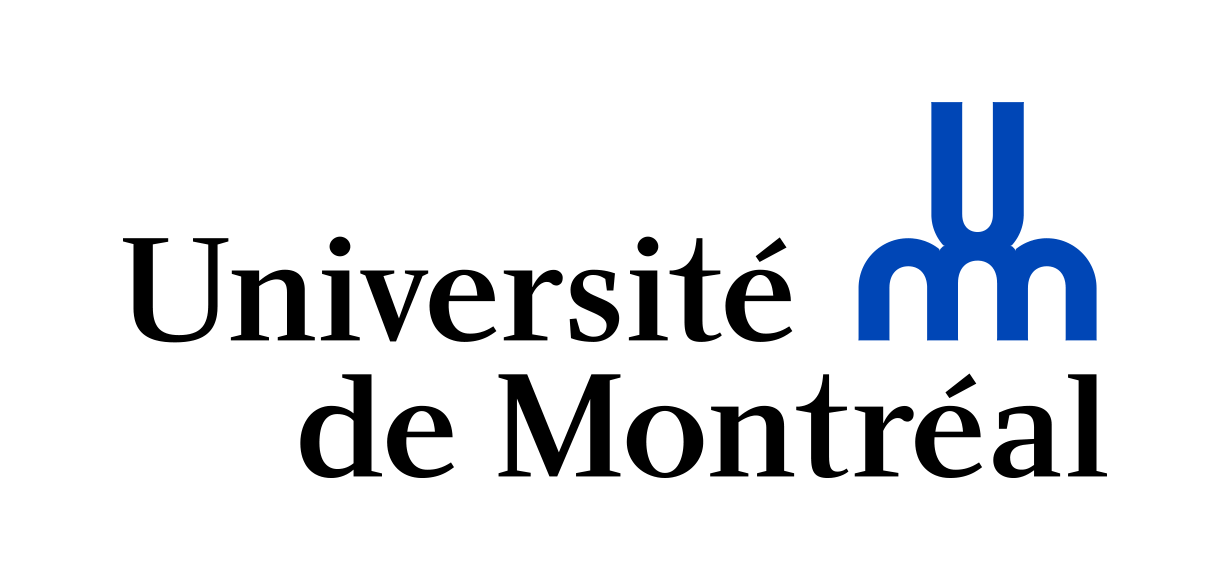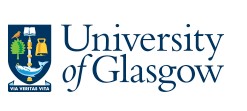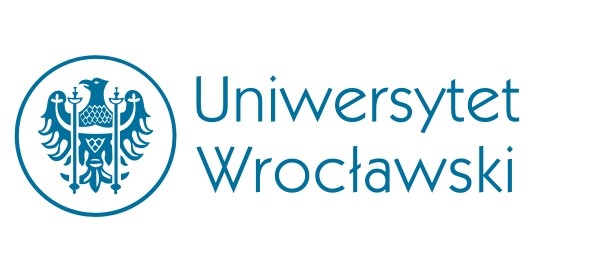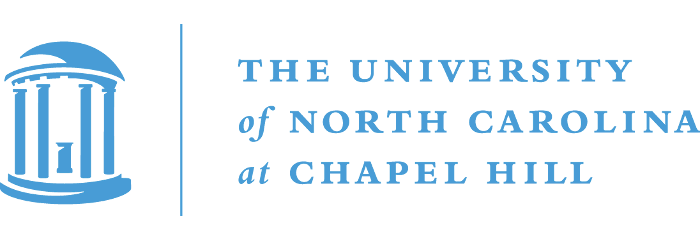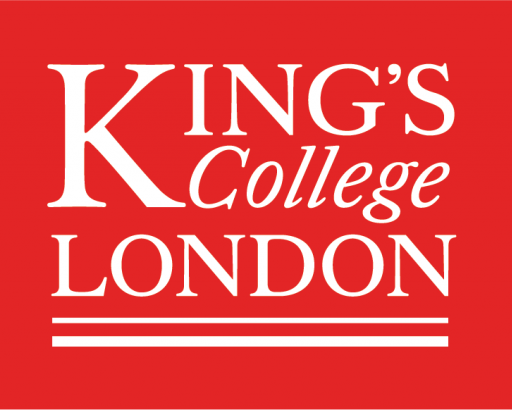Recent Publications from BEAR members
2023
Berg, E. (2023). ‘Engagement Without Recognition’, in Griffiths, R.D., Pavković, A., & Radan, P. (Eds.). The Routledge Handbook of Self-Determination and Secession (1st ed.). Routledge. https://doi.org/10.4324/9781003036593
Dollbaum, J. M., & Robertson, G. B. (2023). The Activist Personality: Extraversion, Agreeableness, and Opposition Activism in Authoritarian Regimes. Comparative Political Studies, 00104140231152772.
Johnson, J. (2023). Taking Stock of Shock: Social Consequences of the 1989 Revolutions. By Kristen Ghodsee and Mitchell Orenstein. New York: Oxford University Press, 2021. 300p. 27.95 paper. Perspectives on Politics, 21(1), 386-387.
Karolewski, I. P., Libin, X., Patapan, H., Halmai, G., Kutay, A., Guasti, P., & Scheuerman, W. E. (2023). Carl Schmitt and Democratic Backsliding. Contemporary Political Theory, 1-32.
Koinova, M., Düvell, F., Kalantzi, F., De Jong, S., Kaunert, C., & Marchand, M. H. (2023). International politics of migration in times of ‘crisis’ and Beyond the COVID-19 pandemic. Migration Studies, 11(1), 242-257.
Núñez Seixas, X. M. and Smith, D. J. (2023) Internationalist patriots? Minority nationalists, ethnic minorities, and the global interwar stage, 1918–39. In: The Quest for Homogeneity in Europe. Bloomsbury. (Accepted for Publication)
Sharafutdinova, G. (2023). The Afterlife of the ‘Soviet Man’: Rethinking Homo Sovieticus. Bloomsbury Publishing.
Sharafutdinova, G. (2023). On double miss in Russian studies: can social and political psychology help?. Post-Soviet Affairs, 1-6.
Smith, D. J. , Dodovski, I. and Ghencea, F. (Eds.) (2023) Realising Linguistic, Cultural and Educational Rights Through Non-Territorial Autonomy. Palgrave Macmillan: Cham. ISBN 9783031198557
Smith, D. J. (2023) ‘Living the same full life’? A critical assessment of non-territorial autonomy practice in the Vojvodina and Sápmi contexts. In: Smith, D. J., Dodovski, I. and Ghencea, F. (eds.) Realising Linguistic, Cultural and Educational Rights Through Non-Territorial Autonomy. Palgrave Macmillan: Cham, pp. 39-42. ISBN 9783031198557 (doi: 10.1007/978-3-031-19856-4_3)
Smith, D. J. and Dodovski, I. (2023) Introduction: Realising linguistic, cultural and educational rights through non-territorial autonomy. In: Smith, D. J., Dodovski, I. and Ghencea, F. (eds.) Realising Linguistic, Cultural and Educational Rights Through Non-Territorial Autonomy. Palgrave Macmillan: Cham, pp. 1-8. ISBN 9783031198557 (doi: 10.1007/978-3-031-19856-4_1)
2022
(2022) Transnistria’s European Drive: A Means to What End?, Geopolitics, 27:3, 852-874, DOI: 10.1080/14650045.2020.1833859
(2022) Holding Back or Pushing Forward? Patron-Client Relations and Elite Navigations in Northern Cyprus, Ethnopolitics, DOI: 10.1080/17449057.2022.2094067
Bernhagen, P., Kollman, K., & Patsiurko, N. (2022). Beyond lobbying: the political determinants of adopting corporate social responsibility frameworks in the European Union and the USA. Interest Groups & Advocacy, 11(3), 373-398.
Cheskin, Ammon, and Alina Jašina-Schäfer. 2022. “Relational Area Studies: Russia and Geographies of Knowledge.” Transactions of the Institute of British Geographers (20220623). https://doi.org/10.1111/tran.12551.
Erl, C., Forest, B., & Medeiros, M. (2022). “Reckless, cavalier, dismissive, petty and vengeful”?: The impact of municipal constituency change on candidate diversity. Political Geography, 99, 102788.
Greene, S. A. (2022). Protest in Russia: Discovering Power. Russian Politics Today: Stability and Fragility, 431.
Greene, S. A. (2022). You are what you read: media, identity, and community in the 2020 Belarusian uprising. Post-Soviet Affairs, 38(1-2), 88-106.
Greene, S. A., & Robertson, G. (2022). Affect and autocracy: Emotions and attitudes in Russia after crimea. Perspectives on Politics, 20(1), 38-52.
Greene, S. A., & Robertson, G. B. (2022). Putin Vs. the People: The Story of a Popular Dictator and the Struggle for the Future of Russia. Yale University Press.
Jolly, S., Bakker, R., Hooghe, L., Marks, G., Polk, J., Rovny, J., Steenbergen, M. & Vachudova, M. A. (2022). Chapel Hill expert survey trend file, 1999–2019. Electoral studies, 75, 102420
Koinova, M. (2022). Polycentric governance of transit migration: A relational perspective from the Balkans and the Middle East. Review of International Studies, 48(3), 461-483.
(2022) Land for peace: can territorial adjustments bring about recognition of self-determination claims?, Territory, Politics, Governance, 10:4, 568-588, DOI: 10.1080/21622671.2020.1781686
Marinov, N., & Popova, M. (2022). Will the Real Conspiracy Please Stand Up: Sources of Post-Communist Democratic Failure. Perspectives on Politics, 20(1), 222-236.
(2022) Conflicts and Shifts in the Kremlin’s Political Discourse since the Start of the Putin Presidency (2000–2019), Europe-Asia Studies, DOI: 10.1080/09668136.2022.2069677
Popova, Maria. 2022. My grandfather said “Screw the Communists, but we all have to vote for them”. Journal of Narrative Politics, 8(2).
Popova, M. (2022). How Corruption and Anti-Corruption Policies Sustain Hybrid Regimes: Strategies of Political Domination Under Ukraine’s Presidents in 1994–2014, by Oksana Huss, ibidem Press, 2020, $45.00 (paperback), ISBN 9783838214306. Nationalities Papers, 50(4), 832-834.
Popova, M. (2022). Revealing Schemes: The Politics of Conspiracy in Russia and the Post-Soviet Region. By Scott Radnitz. New York: Oxford University Press, 2021. 264p. 29.95 paper. Perspectives on Politics, 20(2), 742-743.
Popova, M., & Shevel, O. (2022). Russia’s Invasion of Ukraine Is Essentially Not About NATO. Just Security.
Pop-Eleches, G., Robertson, G., & Rosenfeld, B. (2022). Protest participation and attitude change: Evidence from Ukraine’s Euromaidan Revolution. The Journal of Politics, 84(2), 625-638.
Robertson, G. (2022). Protest, platforms, and the state in the Belarus crisis. Post-Soviet Affairs, 38(1-2), 146-149.
Robertson, G., Pop-Eleches, G., Rosenfeld, B., & Greene, S. (2022). Covid, Anxiety and Information: Lessons from Russia.
Robertson, G. (2022). Elections, Protest, and Authoritarian Regime Stability: Russia 2008–2020.
Rovny, J., Bakker, R., Hooghe, L., Jolly, S., Marks, G., Polk, J., Steenbergen, M. and Vachudova, M.A., 2022. Contesting Covid: The ideological bases of partisan responses to the Covid‐19 pandemic. European Journal of Political Research, 61(4), pp.1155-1164.
Sharafutdinova, Gulnaz. 2022. Alexei Navalny Vs. Vladimir Putin: When Politics Enter the Epic Realm. The Russian Review 81 (3): 561–65. https://doi.org/10.1111/russ.12377.
Sharafutdinova, G. (2022). Global Finance, Local Control: Corruption and Wealth in Contemporary Russia by Igor Logvinenko. Ab Imperio, 2022(2), 324-328.
Sharafutdinova, G. (2022). Is Politics Always the Same? Response to Comments on The Red Mirror: Putin’s Leadership and Russia’s Insecure Identity. Nationalities Papers, 50(3), 624-627.
Sharafutdinova, G. (2022). Public opinion formation and group identity: the politics of national identity salience in post-Crimea Russia. Problems of Post-Communism, 69(3), 219-231.
ASEEES 2022 BEAR Sponsored Panel Report “STUDYING UKRAINIAN AND RUSSIAN DOMESTIC POLITICS IN TIMES OF WAR AND PEACE“, Chicago (November 12).
2021
Anceschi, Luca. 2021. “After Personalism: Rethinking Power Transfers in Turkmenistan and Uzbekistan.” Journal of Contemporary Asia, 51(4), pp. 660-680. (doi: 10.1080/00472336.2020.1772853)
Dembinska, Magdalena. 2021. La fabrique des États de facto: Ni guerre ni paix. Les Presses de l’Université de Montréal.
Dembińska, Magdalena, and Smith, David. (2021) Navigating in-between the EU and Russia. Eurasian Geography and Economics, 62(3), pp. 247-263.
Greene, Samuel. 2021. ‘You are what you read: Media, identity and community in the 2020 Belarusian uprising‘, Post-Soviet Affairs.
Hall, A. John and John Campbell. 2021. The World of States, Second Revised Edition, Cambridge: Cambridge University Press.
Hall, A. John and John Campbell. 2021. What Capitalism Needs: Forgotten Lessons of Great Economists, Cambridge University Press.
Kallas, Kristina. 2021. Russians in Estonia. We are not “them”, we are “us”. New Eastern Europe, 3.
Koinova, Maria, 2021. “Diaspora Entrepreneurs and Contested States” Oxford University Press.
Koinova, Maria, Maryam Z. Deloffre, Frank Gadinger, Zeynep S. Mencutek, Jan Aart Scholte, Jens Steffek, 2021. “It’s Ordered Chaos: What Really Makes Polycentrism Work” International Studies Review Forum, online publication in full open access, 19 Oct. 2021.
Laruelle, Marlene, Mikhail Alexseev, Cynthia Buckley, Ralph S. Clem, J. Paul Goode, Ivan Gomza, Henry E. Hale, Erik Herron, Andrey Makarychev, Madeline McCann, Mariya Omelicheva, Gulnaz Sharafutdinova, Regina Smyth, Sarah Wilson Sokhey, Mikhail Troitskiy, Joshua A. Tucker, Judyth Twigg, and Elizabeth Wishnick. 2021. “Pandemic Politics in Eurasia: Roadmap for a New Research Subfield.” Problems of Post-Communism 68(1): 1–16.
Marinov, Nikolay and Maria Popova. 2021. “Will the Real Conspiracy Please Stand Up: Sources of Post-Communist Democratic Failure.” Perspectives on Politics, 1–15.
Mikheieva, Oksana and Oxana Shevel. 2021. ’Development of national identities in Ukraine in 1991–2018’ (with Oksana Mikheieva), in Mikhail Minakov, Georgii Kasyanov, and Matthew Rojansky, eds., Contemporary Ukraine (Routledge, forthcoming).
(2021) Between the West and Russia: Moldova’s international brokers in a two-level game, Eurasian Geography and Economics, 62:3, 293-318.
Morozov, Viacheslav. 2021 ‘Uneven worlds of hegemony: towards a discursive ontology of societal multiplicity’, International Relations (April 2021).
Morozov, Viacheslav. 2021. ‘The Normative Deadlock in EU–Russia Relations: Hegemony without Influence’, in The Routledge Handbook of EU-Russia Relations: Structures, Actors, Issues, ed. by T. Romanova, M. David (London: Routledge, forthcoming), pp. 48–57.
Morozov, Viacheslav, and E. Pavlova. 2021. “Popular Culture and Authoritarianism in Russia: A Study of Common Sense Through the Prism of Women’s Fiction”, Europe-Asia Studies, 73(2): 318−339.
Piroska, Dóra, Yuliya Gorelkina, and Juliet Johnson, “Macroprudential Policy on an Uneven Playing Field: Supranational Regulation and Domestic Politics in the EU’s Dependent Market Economies,” JCMS: Journal of Common Market Studies, 59:3 (2021): 497-517.
Powell, Stephen and Adrian Florea. 2021. Introducing the Armed Nonstate Actor Rivalry Dataset (ANARD). Civil Wars, 23(2), pp. 177-206.
Sharafutdinova, Gulnaz. 2021. “Domestic and Global Dimensions of Post-Communist Institution-Building.” Comparative Politics 53 (2): 357-73.
Smith, D. J. (2021) One Russia, many worlds: balancing external homeland nationalism and internal ethnocultural diversity. Eurasian Geography and Economics, 62(3), pp. 372-396.
Udrea, A. and Smith, D. (2021) Minority protection and kin-state engagement: Karta Polaka in comparative perspective. Ethnopolitics, 20(1), pp. 67-82.
Udrea, A. , Smith, D. and Cordell, K. (2021) Karta Polaka, Poland and its co-ethnics abroad. Ethnopolitics, 20(1), pp. 1-11.
Vachudova, Milada Anna (2021). “Populism, Democracy and Party System Change in Europe”, Annual Review of Political Science 24.
2020
Anceschi, Luca. 2020. Analysing Kazakhstan’s Foreign Policy: Regime Neo-Eurasianism in the Nazarbaev Era. Central Asia Research Forum Series. Routledge.
Anceschi, Luca. 2020. “New Developments in Russo-Turkmen Relations.” Russian Analytical Digest 248: 9–11.
Anceschi, Luca. 2020. Review of Learning to Become Turkmen. Literacy, Language, and Power, 1914–2014 by Victoria Clement. Europe-Asia Studies 72 (7): 1273–5.
2020. “Getting the opposition together: protest coordination in authoritarian regimes.” Post-Soviet Affairs 36 (1): 1-19.
Bakker, Ryan, Liesbet Hooghe, Seth Jolly, Gary Marks, Jonathan Polk, Jan Rovny, Marco Steenbergen, and Milada Anna Vachudova. 2020. “Who opposes the EU? Continuity and change in party Euroscepticism between 2014 and 2019.” LSE European Politics and Policy (EUROPP) blog, June 1, 2020.
Berg, Eiki and Kristel Vits. 2020. “Exploring de facto state agency: negotiation power, international engagement and patronage.” In Handbook on the Politics of Small States, edited by Godfrey Baldacchino and Anders Wivel, 379–94. Elgar.
Berg, Eiki and Kristel Vits. 2020. “Transnistria’s European Drive: A Means to What End?” Geopolitics.
Berg, Eiki and Scott Pegg. 2020. “Do Parent State Strategies Matter in Resolving Secessionist Conflicts with De Facto States?”, in R. Griffiths and D. Muro, eds. Strategies of Secession and Counter-Secession. London: ECPR Press: 52-68.
(2020) Conflict and cooperation between Europe and Russia: the autonomy of the local, East European Politics, 36:4, 477-498.
Dembinska, Magdalena, Françoise Montambeault, Martin Papillon (2020): “Finding Deliberative Niches: A Systemic Approach to Deliberation for Conflict Resolution”, in: Acta Politica 55, 692-710.
Florea, Adrian. 2020. “Rebel governance in de facto states.” European Journal of International Relations 26 (4): 1004–31.
Forest, Benjamin and Sarah Moser. 2020. “Building Nations/Building States/Building Cities: Concrete Symbols of Identity” in The Changing Geographies of the State: New Spaces of Geopolitics, edited by N. Koch, S. Moisio, A. Jonas, C. Lizotte, and J. Luukkonen. Northampton, MA: Edward Elgar: 145-157.
Forest, Benjamin (2020) “Political Representation”, in the International Encyclopedia of Human Geography, 2nd edition, edited by Audrey Kobayashi. Elsevier. https://doi.org/10.1016/B978-0-08-102295-5.10489-5
Gorgolu, Nisan, Gulnaz Sharafutdinova, and Jevgenijs Steinbuks. 2020. Political Dividends of Digital Participatory Governance: Evidence from Moscow Pothole Management. World Bank Group Policy Research Working Paper.
Greene, Samuel & Graeme Robertson. 2020, ‘Affect and Autocracy: Emotions and Attitudes in Russia after Crimea‘, PERSPECTIVES ON POLITICS, vol. First view, pp. 1 – 15. https://doi.org/10.1017/S1537592720002339
Greene, Samuel and Graeme Robertson. 2020. “State-Mobilized Movements after Annexation of Crimea: The Construction of Novorossiya”. Ruling by Other Means: State-Mobilized Movements. editors Grzegorz Ekiert, Elizabeth J. Perry, Yan Xiaojun. Cambridge University Press.
Greene, Samuel, Gregory Asmolov, Adam Fagan, Ofer Fridman, & Borjan Gjuzelov. 2020. Mapping Fake News and Disinformation in the Western Balkans and Identifying Ways to Effectively Counter Them. Study requested by the European Parliament’s Committee on Foreign Affairs. Brussels: European Union.
Grenier, Félix, Jonas Hagmann, Thomas Biersteker, Marina Lebedeva, Yulia Nikitina, and Ekaterina Koldunova. 2020. “The Institutional “Hinge”: How the End of the Cold War Conditioned Canadian, Russian, and Swiss IR Scholarship.” International Studies Perspectives 21 (2): 198–217.
Hall, John A. 2020. The Grammar of Social Theory, or, Negotiations in Hell. Irish Journal of Sociology 28(1): 29–43.
Jašina-Schäfer, Alina and Ammon Cheskin. 2020. ““Horizontal citizenship in Estonia: Russian speakers in the borderland city of Narva.” Citizenship Studies 24(1): 93-110.
Johnson, Juliet and Olga Malinova, “Символическая политика как предмет political science и Russian studies: Исследования политического использования прошлого в постсоветской России [Symbolic politics in political science and Russian studies: Research on the political uses of the past in post-Soviet Russia],” Политическая наука [Political Science] 2 (2020): 15-41.
Kursani, Shpend and Eiki Berg. 2020. “Land for peace: can territorial adjustments bring about recognition of self-determination claims?” Territory, Politics, Governance.
Lasnier, Virginie and Seçkin Köstem. 2020. “Resisting Decline: Russia, the West and Eurasia.” In Coping with Geopolitical Decline: The United States in European Perspective, edited by Frédéric Mérand, 127–60. McGill-Queen’s University Press.
Medeiros, Mike, Benjamin Forest, and Patrik Öhberg. 2020. “The Case for Non-Binary Gender Questions in Surveys.” PS: Political Science & Politics 53 (1): 128–35.
(2020) Theorising cooperation and conflict in Euro-Russian relations, East European Politics, 36:4, 465-476.
Morozov, Viacheslav. 2020. “Why Would the Kremlin Root for Bernie Sanders? Mistrust of Mass Politics and the Outward Projection of Domestic Insecurities.” PONARS Eurasia Policy Memo No. 639.
Nesmashnyi, Alexander Dmitrievich and Yulia Nikitina. 2020. “Local Hegemony: China’s Special Economic Zones in Mauritius and Zambia.” Vestnik RUDN. International Relations 20 (1): 97-114.
Nikitin, Alexander, Irina Bolgova and Yulia Nikitina. 2020. “Activities of Non-Governmental Organisations Aimed at Conflict Settlement in Post-Soviet States.” Quaestio Rossica 8(2): 428–41.
Popova, Maria. 2020. “Can a Leopard Change its Spots? Strategic Behavior vs. Professional Role Conception During Ukraine’s 2014 Court Chair Elections.” Law & Policy 42 (4): 365-81.
Popova, Maria and Daniel Beers. 2020. “No Revolution of Dignity for Ukraine’s Judges: Judicial Reform After Maidan.” Demokratizatsiya 28 (1): 113-42.
Sharafutdinova, Gulnaz. 2020. The Red Mirror: Putin’s Leadership and Russia’s Insecure Identity. Oxford University Press.
Sharafutdinova, Gulnaz. 2020. “Public Opinion Formation and Group Identity: The Politics of National Identity Salience in Post-Crimea Russia.” Problems of Post-Communism.
Sharafutdinova, Gulnaz and Michael Lokshin. 2020. Hide and Protect: A Role of Global Financial Secrecy in Shaping Domestic Institutions. World Bank Group Policy Research Working Paper.
Vachudova, Milada Anna. 2020. “Ethnopopulism and democratic backsliding in Central Europe.” East European Politics 36 (3): 318–40.
Vansina, Laura and Alexander Mattelaer, eds. 2020. Dealing with Russia: Towards a Coherent Belgian Policy. Brussels: Egmont.
Smith, David J. 2020. “One Russia, many worlds: balancing external homeland nationalism and internal ethnocultural diversity.” Eurasian Geography and Economics.
Smith, David J. 2020. “The ‘Quadratic Nexus’ Revisited: Nation-Building in Estonia Through the Prism of National Cultural Autonomy.” Nationalities Papers 48 (2): 235-50.
Smith, David J. 2020. “Introduction to the Special Issue on National Cultural Autonomy in Diverse Political Communities: Practices, Challenges, and Perspectives.” Nationalities Papers 48 (2): 224–34.
Smith, David J., Marina Germane, and Martyn Housden. 2020. “‘Forgotten Europeans’: transnational minority activism in the age of European integration.” Nations and Nationalism 25 (2): 523–43.
2019
Anceschi, Luca. 2019. “Regime-Building through Controlled Opening: New Authoritarianism in Post-Karimov Uzbekistan.” In Monitoring Central Asia and the Caspian Area: Development Policies, Regional Trends, and Italian Interests, edited by Carlo Frappi and Fabio Indeo. Edizioni Ca’Foscari.
Anceschi, Luca. 2019. Review of Theorizing Central Asian Politics—The state, ideology and power, edited by Rico Isaacs and Alessandro Frigerio. Inner Asia 21 (2): 285–6.
Anceschi, Luca. 2019. “Caspian Energy in the Aftermath of the 2018 Convention: The View from Kazakhstan and Turkmenistan.” Russian Analytical Digest 235: 6–8.
Berg, Eiki & James Ker-Lindsay (eds.). 2019. The Politics of International Interaction with de facto States: Conceptualising Engagement without Recognition. Routledge.
Bolgova, Irina and Yulia Nikitina. “Eurasian Economic Union at a Crossroads Between Integration and Sovereignty.” Contemporary Europe 5 (91):13-22
Cheskin, Ammon & Angela Kachuyevski. 2019. “The Russian-Speaking Populations in the Post-Soviet Space: Language, Politics and Identity,” Europe-Asia Studies 71(1): 1-23.
DeBardeleben, Joan & Dmitry Nechiporuk. 2019. “Diverging views of EU-Russian borders: points of congruence and difference in EU and Russian analyses”, Journal of Contemporary European Studies, 27 (2): 196-207.
DeHanas, Daniel Nilsson and Marat Shterin. 2019. Religion and the Rise of Populism. Routledge.
Forest, Benjamin. 2019. “Reforming the US Senate: Original intent and representational inequality.” Guest editorial (reviewed). Political Geography 74.
Forest, Benjamin and Juliet Johnson. 2019. “Confederate monuments and the problem of forgetting.” Cultural Geographies in Practice 26 (1): 127–31.
Greene, Samuel. 2019. “Homo Post-Sovieticus: Reconstructing Citizenship in Russia.” Social Research: An International Quarterly 86 (1): 181-202.
Greene, Samuel A. & Graeme B. Robertson. 2019. Putin v. the People: The Perilous Politics of a Divided Russia. Yale University Press.
Johnson, Juliet, Vincent Arel-Bundock and Vladislav Portniaguine. 2019. “Adding rooms onto a house we live: Central banking after the global financial crisis.” Public Administration 97 (3): 546–60.
Hurelmann, Achim and Joan DeBardeleben. 2019. “‘Demoi-cracy’: A Useful Framework for Theorizing the Democratization of Multilevel Governance?” in Configurations, Dynamics, and Mechanisms of Multilevel Governance, Nathalie Behnke, Jörg Broschek, Jared Sonnicksen, eds. ICham, Switzerland: Palgrave Macmillan, pp. 293-310.
Koinova, Maria. 2019. “Diaspora Coalition-building for Genocide Recognition: Armenians, Assyrians and Kurds,” Ethnic and Racial Studies, published online on 14 February, 2019.
Lee, Michael J., Adrian Florea, and Nicolas Blarel. 2019. “Opening the Black Box of Finance: North–South Investment, Political Risk, and US Military Intervention.” Political Studies 67(4): 872–894.
Medeiros, Mike, Benjamin Forest, Paru Shah, and Erik Juenke. 2019. “Still Not There: Continued Challenges to Women’s Political Representation.” Introduction to a Dialogues in Politics, Groups, and Identities 7(2): 386-388.
Medeiros, Mike, Benjamin Forest, and Chris Erl. 2019. “Where Women Stand: Parliamentary Candidate Selection in Canada.” Politics, Groups, and Identities 7(2): 389-400.
Vachudova, Milada Anna. 2019. “From Competition to Polarization in Central Europe: How Populists Change Party Systems and the European Union.” Polity 51 (4): 689–706.
Vachudova, Milada Anna. 2019. “EU Enlargement and State Capture in the Western Balkans.” In The Europeanisation of the Western Balkans. New Perspectives on South-East Europe, edited by Jelena Džankić, Soeren Keil, and Marko Kmezić. Palgrave Macmillan.
Vachudova, Milada Anna. 2019. “In Prague, protesters demand the resignation of Prime Minister Andrej Babiš.” The Washington Post website, June 25.
Vachudova, Milada Anna. 2019. “The EU’s Eastward Enlargement and the Illiberal Turn.” Current History 118 (806): 90–95.
Smith, David J., Marina Germane & Martyn Housden. 2019. “‘Forgotten Europeans’: transnational minority activism in the age of European integration'”, Nations and Nationalism 25 (2): 523–43.
Sharafutdinova, Gulnaz. 2019. “Was There a ‘Simple Soviet’ Person? Debating the Politics and Sociology of ‘Homo Sovieticus’.” Slavic Review 78 (1): 173–95.
Shevel, Oxana. 2019. “The Politics of Dual Citizenship in Post-Soviet States: Securing Political Goals Through Citizenship Rules.” PONARS Eurasia Policy Memo No. 587.
Shevel, Oxana. 2019. “Trump’s request for a ‘favor’ could really hurt Ukraine’s president and his agenda.” The Washington Post website, October 7.
Shterin, Marat and Dmitry Dubrovsky. “Academic Expertise and Anti-Extremism Litigation in Russia: Focusing on Minority Religions.” The Soviet and Post-Soviet Review 46 (2): 211–36.
2018
Anceschi, Luca. 2018. “Modernizing Authoritarianism in Uzbekistan.” openDemocracy website, July 9.
Berg, Eiki. 2018. “Bridging the divide between parent states and secessionist entities: a new perspective for conflict management?” Space and Polity 22 (1): 15–29.
Berg, Eiki. 2018. “The Do-or-Die Dilemma Facing Post-Soviet De Facto States.” PONARS Eurasia Policy Memo No. 527.
Berg, Eiki, Piret Ehin, Andres Kasekamp, Maria Mälksoo, Eva Piirimäe, Raul Toomla, and Rein Toomla, eds. 2018. Sissejuhatus rahvusvahelistesse suhetesse: õpik kõrgkoolidele. Tartu University Press.
Berg, Eiki and Maria Mälksoo. 2018. “Konfliktid ja nende reguleerimine.” In Sissejuhatus rahvusvahelistesse suhetesse: õpik kõrgkoolidele, edited by Eiki Berg, Piret Ehin, Andres Kasekamp, Maria Mälksoo, Eva Piirimäe, Raul Toomla, and Rein Toomla. Tartu University Press.
Berg, Eiki and Martin Mölder. “The politics of unpredictability: Acc/secession of Crimea and the blurring of international norms.” East European Politics 34 (4): 400–17.
Berg, Eiki and Scott Pegg. 2018. “Scrutinizing a Policy of ‘Engagement Without Recognition’: US Requests for Diplomatic Actions with De Facto States.” Foreign Policy Analysis 14 (3): 388–407.
Berg, Eiki and Kristel Vits. 2018. “Quest for Survival and Recognition: Insights into the Foreign Policy Endeavours of the Post-Soviet de facto States.” Ethnopolitics 17 (4): 390–407.
Berg, Eiki and Henk Van Houtum. 2018. “Prologue: A border is not a border. Writing and reading borders in space.” In Routing Borders between Territories, Discourses and Practices, pp. 1-10. Routledge.
Csergő, Zsuzsa, Ognen Vangelov and Balázs Vizi. 2018. “Europeanization and Changes in Minority Inclusion in Central and Eastern Europe.” Introduction to special issue co-edited in Intersections: East European Journal of Society and Politics 3 (4): 5-13.
DeBardeleben, Joan. 2018. “Geopolitics of the EU,” in Emmanuel Brunet-Jailly, Achim Hurrelmann, and Amy Verdun, eds. European Union Governance and Policy Making: A Canadian Perspective, Toronto: University of Toronto Press, pp. 359-378.
DeBardeleben, Joan. 2018. “The Russian Federation,” in Mark Kesselmann, Joel Krieger, and William A. Joseph, eds. Introduction to Comparative Politics, 8th edition, Cengage Learning, pp. 555-606.
DeBardeleben, Joan. 2018. “Alternative Paradigms for EU-Russian Neighbourhood Relations,” in EU-Russia Relations in Crisis: Understanding Diverging Perspectives, Tom Casier and Joan DeBardeleben, eds. London and New York: Routledge, pp.115-136
Florea, Adrian. 2018. “Authority Contestation During and After Civil War,” Perspectives on Politics 16 (1): 149-155.
Florea, Adrian. 2018. “Spatial Rivalry and Coups Against Dictators,” Security Studies 27 (1): 1-26.
Greene, Samuel A. 2018. “Running to stand still: aggressive immobility and the limits of power in Russia,” Post-Soviet Affairs 34 (5): 333-347.
Ker-Lindsay, James and Eiki Berg. 2018. “Introduction: A Conceptual Framework for Engagement with de facto States.” Ethnopolitics 17 (4): 335–42.
Koinova, Maria. 2018. “Sending States and Diaspora Positionality in International Relations,” International Political Sociology 12 (2): 190-210. Short video.
Koinova, Maria. 2018. “Diaspora Mobilisations for Conflict and Postconflict Reconstruction: Contextual and Comparative Dimensions,” introduction to a special journal issue in Journal of Ethnic and Migration Studies, open access. Short video.
Lasnier, Virginie. 2018. “Can Authoritarian Regimes Breed Loyalty? The Case of Nashi,” Russian Politics 3 (4): 461-485.
Lasnier, Virginie. 2018. “Russia’s Opposition Movement Five Years After Bolotnaia: The Electoral Trap?,” Problems of Post-Communism 65 (5): 359-371.
Popova, Maria & Vincent Post. 2018. “Prosecuting high-level corruption in Eastern Europe,” Communist and Post-Communist Studies 51 (3): 231-244.
Popova, Maria. 2018. “Journalists, Judges, and State Officials: How Russian Courts Adjudicate Defamation Lawsuits Against the Media” in Kurkchiyan, Marina, and Agnieszka Kubal, eds. A Sociology of Justice in Russia. Cambridge University Press: 141-170.
Smith, David J., Marina Germane & Martyn Housden. 2018. “‘Forgotten Europeans’: transnational minority activism in the age of European integration,” Nations and Nationalism 1–21.
Van Houtum, Henk and Eiki Berg, eds. 2018. Routing Borders Between Territories, Discourses, and Practices. Routledge.






